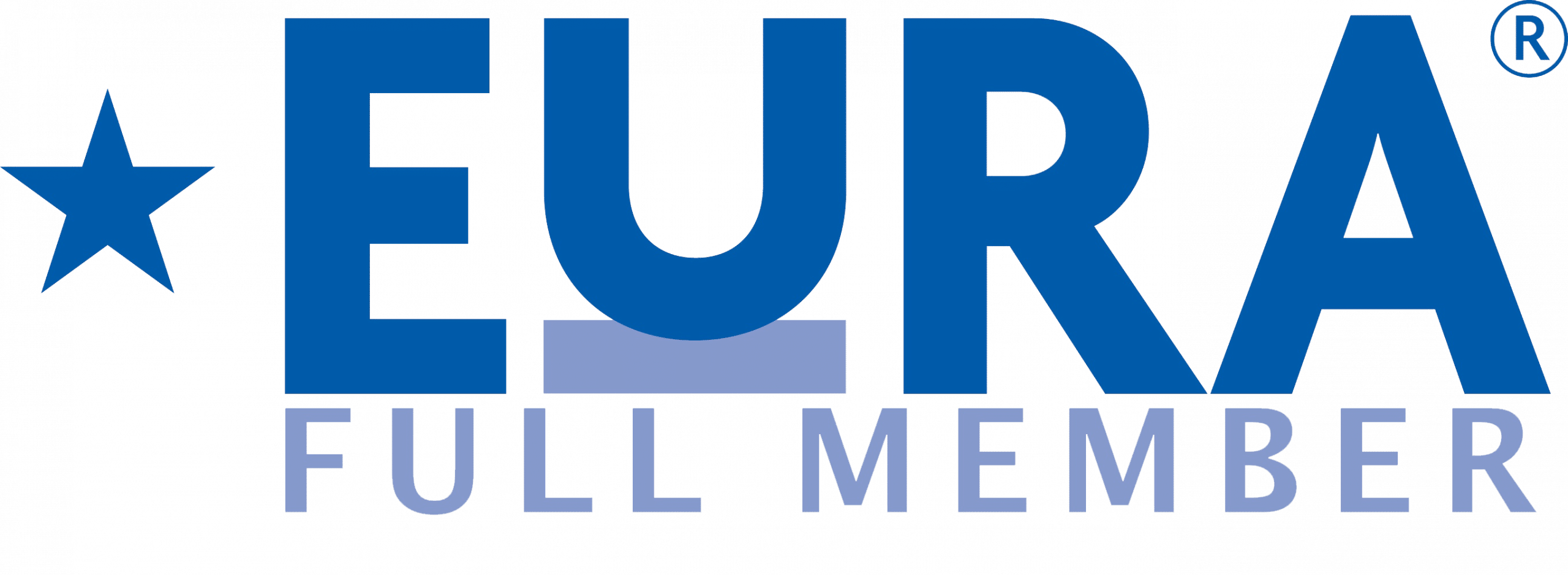
States Positions on Tax Cuts and Jobs Act
While moving expense deductions and exclusions are widely understood when it comes to federal taxes, how does this affect state taxes? The short answer is that it varies by state, influencing some while not others. Get the long answer on how the TCJA of December 2017 may impact your employees in various states below.
WHEN IT COMES TO FEDERAL RELOCATION TAX LAW CHANGES, NOT ALL STATES ARE PLAYING FOLLOW THE LEADER
When the U.S. passed the Tax Cuts and Jobs Act (TCJA) in December 2017, everyone understood the suspension of the moving expense deduction/exclusion from 2018 – 2025 related to federal taxes. Now, the conversation regarding how each state will address the same topic is heating up. Almost all states base their tax codes in some way on federal definitions of income before applying their own adjustments and deductions and setting their own tax rates. In some cases, states must enact new
legislation to re-align, or the new law would not apply.
To understand how federal tax reform would change state tax codes and revenues, we need to explore the idea of conformity. For reasons of administrative simplicity, states frequently seek to conform many—though rarely all— elements of their tax codes to the federal tax code. This harmonization of definitions and policies reduces compliance costs for individuals and businesses with liability in multiple states, as well as limits the potential for double taxation of income. No state conforms to the federal code in all respects and not all provisions of the federal code make for good tax policy, but greater conformity substantially reduces tax complexity and has significant value.1
FEDERAL TAXABLE INCOME
Six states use the federal government’s definition of “taxable income” as the starting point for their own tax calculations. That means nearly any change Congress makes to the federal tax code will affect these states’ tax codes as well.
|
Colorado |
Idaho |
Minnesota |
|
North Dakota |
Oregon |
South Carolina |
FEDERAL ADJUSTED GROSS INCOME
Twenty-nine states and the District of Columbia start their tax calculations with the adjusted gross income figure that taxpayers report on their federal returns. Unlike taxable income, adjusted gross income is unaffected by most deductions, so these states’ tax collections are less sensitive to federal changes. However, some of these states still incorporate federal concepts, such as the standard deduction and the personal exemption. As such, reforms that change those provisions will affect those states.
|
Arizona |
California |
Connecticut |
Delaware |
Washington D.C. |
Georgia |
|
Hawaii |
Illinois |
Indiana |
Iowa |
Kansas |
Kentucky |
|
Louisiana |
Maine |
Maryland |
Michigan |
Missouri |
Montana |
|
Nebraska |
New Mexico |
New York |
North Carolina |
Ohio |
Oklahoma |
|
Rhode Island |
Utah |
Vermont |
Virginia |
West Virginia |
Wisconsin |
NO STATE INCOME TAX
Seven states have no individual income tax. Two others (New Hampshire and Tennessee) tax only interest and dividends, not ordinary income.
|
Alaska |
Florida |
Nevada |
New Hampshire |
|
Texas |
Washington |
Wyoming |
Tennessee |
NOT ALL STATES ARE PLAYING ALONG
Six states have formally realigned, conforming their tax laws for moving expenses to follow the federal law: Georgia, Idaho, Ohio, Oregon, West Virginia, and Wisconsin. Additionally, we now have three states that have enacted legislation that breaks from federal in some way: Arizona, Kentucky, and Virginia.
If a state chooses to deviate from federal guidelines regarding taxation of relocation expenses, the decision only affects state taxes. The federal tax code will still apply. For example, if an individual state decides it will not tax costs related to the shipment of household goods, the expenses are not subject to state tax only. The expenses would still be subject to federal tax.
How Does This Affect the Payroll Process?
Altair Global recommends that our clients follow the federal position on taxability as part of their overall gross- up methodology to avoid significant administrative work during this transition year. We believe most states will ultimately conform to the federal tax code before the end of 2018. For states that do not, the result will be excess gross up on a small population. To reconcile and address the excess gross up, a true up—or reconciliation— conducted at year-end will adjust for any states that do not conform.
What Does This Mean for Our Clients?
Altair Global anticipates that states will continue to evaluate and potentially update their position on the taxability of moving expenses throughout 2018. Among Altair Global’s client base, 100% of clients who have finalized their decision related to handling of relocation expenses going forward have made the decision to provide gross-up assistance for relocation expenses previously categorized as deductible, such as household goods and final-move expenses.
If you have questions regarding this Altair Advisor, please contact your Client Services or Business Development representative.
1–Kaeding, Nicole. “Does Your State’s Individual Tax Code Conform with the Federal Code?” Tax Foundation, Tax Foundation, 13 Dec. 2017, taxfoundation.org/state-individual-income-tax-code-conform-federal-tax-code/.
Altair Global (‘Altair’) has provided this information as a service and convenience for your information only. It is not intended to replace your own legal or financial guidance and/or assistance and you are encouraged to seek the advice of your own tax and legal advisor. Further, the information contained herein is to our knowledge accurate to the extent of the data available to Altair as of the date identified. Altair does not assume responsibility for the accuracy of the contents hereof and is under no obligation to update the material contained herein.
Altair Global (‘Altair’) has provided this information as a service and convenience for your information only. It is not intended to replace your own legal or financial guidance and/or assistance and you are encouraged to seek the advice of your own tax and legal advisor. Further, the information contained herein is to our knowledge accurate to the extent of the data available to Altair as of the date identified. Altair does not assume responsibility for the accuracy of the contents hereof and is under no obligation to update the material contained herein.
Share This Story, Choose Your Platform!
While moving expense deductions and exclusions are widely understood when it comes to federal taxes, how does this affect state taxes? The short answer is that it varies by state, influencing some while not others. Get the long answer on how the TCJA of December 2017 may impact your employees in various states below.
WHEN IT COMES TO FEDERAL RELOCATION TAX LAW CHANGES, NOT ALL STATES ARE PLAYING FOLLOW THE LEADER
When the U.S. passed the Tax Cuts and Jobs Act (TCJA) in December 2017, everyone understood the suspension of the moving expense deduction/exclusion from 2018 – 2025 related to federal taxes. Now, the conversation regarding how each state will address the same topic is heating up. Almost all states base their tax codes in some way on federal definitions of income before applying their own adjustments and deductions and setting their own tax rates. In some cases, states must enact new
legislation to re-align, or the new law would not apply.
To understand how federal tax reform would change state tax codes and revenues, we need to explore the idea of conformity. For reasons of administrative simplicity, states frequently seek to conform many—though rarely all— elements of their tax codes to the federal tax code. This harmonization of definitions and policies reduces compliance costs for individuals and businesses with liability in multiple states, as well as limits the potential for double taxation of income. No state conforms to the federal code in all respects and not all provisions of the federal code make for good tax policy, but greater conformity substantially reduces tax complexity and has significant value.1
FEDERAL TAXABLE INCOME
Six states use the federal government’s definition of “taxable income” as the starting point for their own tax calculations. That means nearly any change Congress makes to the federal tax code will affect these states’ tax codes as well.
|
Colorado |
Idaho |
Minnesota |
|
North Dakota |
Oregon |
South Carolina |
FEDERAL ADJUSTED GROSS INCOME
Twenty-nine states and the District of Columbia start their tax calculations with the adjusted gross income figure that taxpayers report on their federal returns. Unlike taxable income, adjusted gross income is unaffected by most deductions, so these states’ tax collections are less sensitive to federal changes. However, some of these states still incorporate federal concepts, such as the standard deduction and the personal exemption. As such, reforms that change those provisions will affect those states.
|
Arizona |
California |
Connecticut |
Delaware |
Washington D.C. |
Georgia |
|
Hawaii |
Illinois |
Indiana |
Iowa |
Kansas |
Kentucky |
|
Louisiana |
Maine |
Maryland |
Michigan |
Missouri |
Montana |
|
Nebraska |
New Mexico |
New York |
North Carolina |
Ohio |
Oklahoma |
|
Rhode Island |
Utah |
Vermont |
Virginia |
West Virginia |
Wisconsin |
NO STATE INCOME TAX
Seven states have no individual income tax. Two others (New Hampshire and Tennessee) tax only interest and dividends, not ordinary income.
|
Alaska |
Florida |
Nevada |
New Hampshire |
|
Texas |
Washington |
Wyoming |
Tennessee |
NOT ALL STATES ARE PLAYING ALONG
Six states have formally realigned, conforming their tax laws for moving expenses to follow the federal law: Georgia, Idaho, Ohio, Oregon, West Virginia, and Wisconsin. Additionally, we now have three states that have enacted legislation that breaks from federal in some way: Arizona, Kentucky, and Virginia.
If a state chooses to deviate from federal guidelines regarding taxation of relocation expenses, the decision only affects state taxes. The federal tax code will still apply. For example, if an individual state decides it will not tax costs related to the shipment of household goods, the expenses are not subject to state tax only. The expenses would still be subject to federal tax.
How Does This Affect the Payroll Process?
Altair Global recommends that our clients follow the federal position on taxability as part of their overall gross- up methodology to avoid significant administrative work during this transition year. We believe most states will ultimately conform to the federal tax code before the end of 2018. For states that do not, the result will be excess gross up on a small population. To reconcile and address the excess gross up, a true up—or reconciliation— conducted at year-end will adjust for any states that do not conform.
What Does This Mean for Our Clients?
Altair Global anticipates that states will continue to evaluate and potentially update their position on the taxability of moving expenses throughout 2018. Among Altair Global’s client base, 100% of clients who have finalized their decision related to handling of relocation expenses going forward have made the decision to provide gross-up assistance for relocation expenses previously categorized as deductible, such as household goods and final-move expenses.
If you have questions regarding this Altair Advisor, please contact your Client Services or Business Development representative.
1–Kaeding, Nicole. “Does Your State’s Individual Tax Code Conform with the Federal Code?” Tax Foundation, Tax Foundation, 13 Dec. 2017, taxfoundation.org/state-individual-income-tax-code-conform-federal-tax-code/.
Altair Global (‘Altair’) has provided this information as a service and convenience for your information only. It is not intended to replace your own legal or financial guidance and/or assistance and you are encouraged to seek the advice of your own tax and legal advisor. Further, the information contained herein is to our knowledge accurate to the extent of the data available to Altair as of the date identified. Altair does not assume responsibility for the accuracy of the contents hereof and is under no obligation to update the material contained herein.
Altair Global (‘Altair’) has provided this information as a service and convenience for your information only. It is not intended to replace your own legal or financial guidance and/or assistance and you are encouraged to seek the advice of your own tax and legal advisor. Further, the information contained herein is to our knowledge accurate to the extent of the data available to Altair as of the date identified. Altair does not assume responsibility for the accuracy of the contents hereof and is under no obligation to update the material contained herein.



![States Positions on Tax Cuts and Jobs Act 7 [GUIDE] Local Plus Policy Considerations](https://www.altairglobal.com/wp-content/uploads/2024/12/GCS-Thought-Leadership-Blog-Header-Image-500x383.png)



